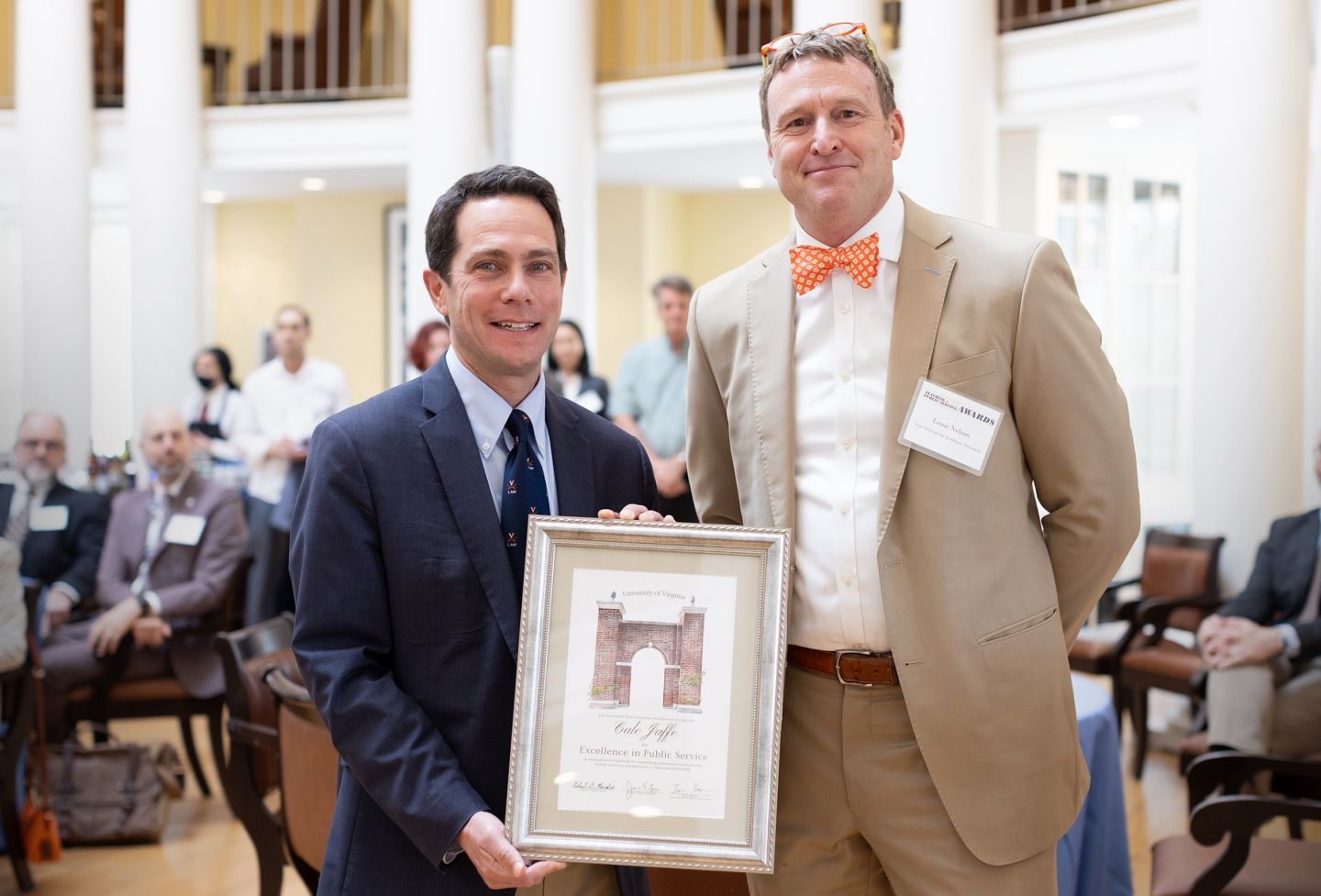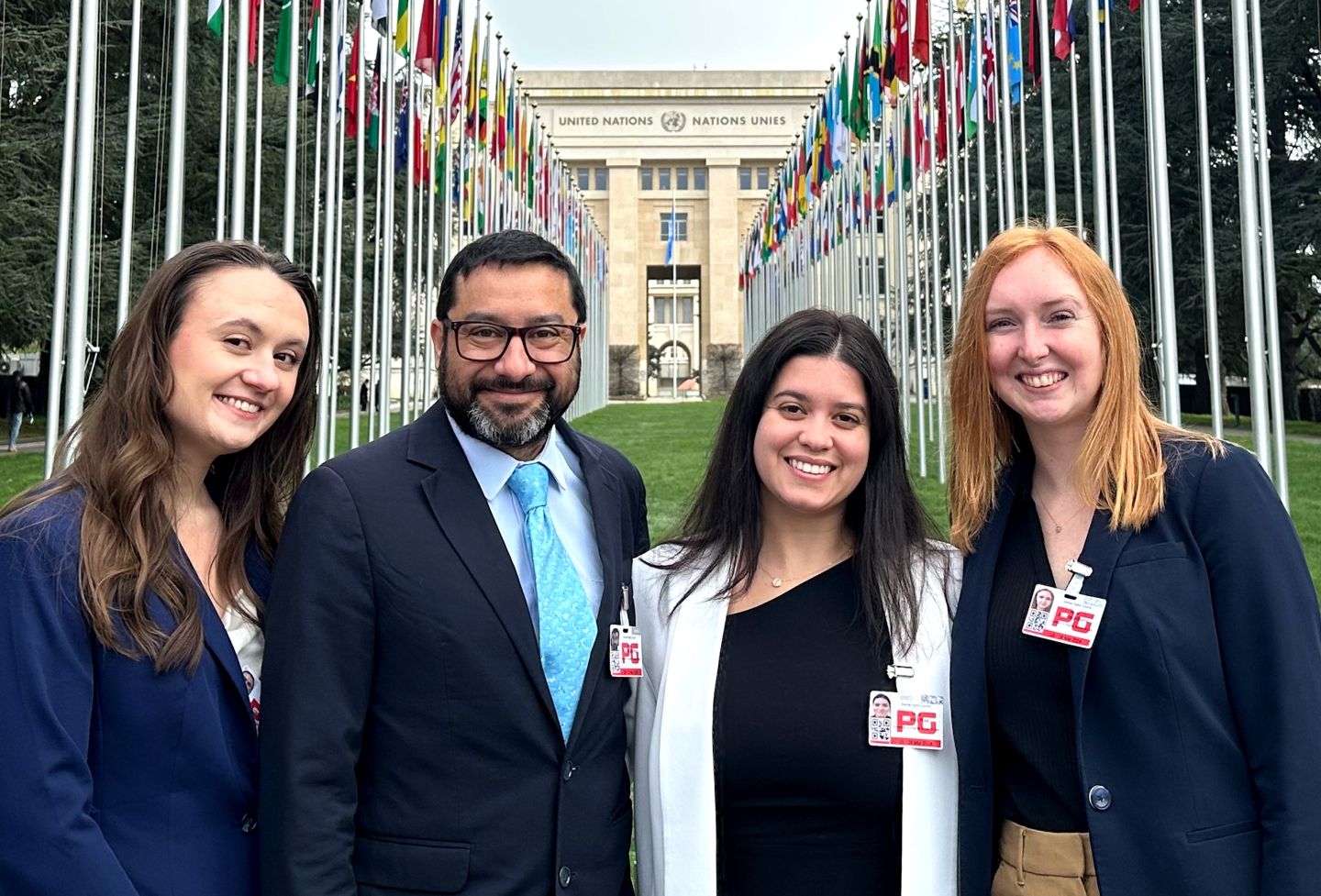Global Warming Strategy Should Consider Countries’ Cultures, Says Bell
 Debates over how to best address global climate change go on as if all of the world’s countries had the same sorts of economic, legal, and cultural frameworks, suggested Ruth Greenspan Bell at a Virginia Environmental Law Journal symposium Friday. In fact, Bell said, cultural variability needs to be taken into account before any kind of effective international strategy for addressing global climate change can be devised.
Debates over how to best address global climate change go on as if all of the world’s countries had the same sorts of economic, legal, and cultural frameworks, suggested Ruth Greenspan Bell at a Virginia Environmental Law Journal symposium Friday. In fact, Bell said, cultural variability needs to be taken into account before any kind of effective international strategy for addressing global climate change can be devised.
Bell, the director of Resources for the Future’s program for International Institutional Environmental Assistance, explained in her keynote address that there now seems to be some momentum gathering to seriously address global warming and climate change within the United States.
According to Bell, taking significant steps to address global climate change will allow the United States to help motivate other countries, such as China, India, and Brazil, to follow suit.
“This opens the door for some rethinking of how to engage the international community in the overall effort,” she said. “Once the United States actually does something, we’re…in a position to go out there and start talking to the rest of the world.”
Bell expressed her concerns with the Kyoto Protocol, an international treaty designed to limit global greenhouse gas emissions
“The idea was that firms that could control their pollution more cheaply could accumulate credits and sell them to others who might otherwise spend more to reduce their pollution,” she said. “But here was the basic problem: in Russia, Ukraine, Poland, no one was controlling their pollution, and no one had the incentive to do so—there was no regulatory system that really forced them to do that.”
Bell added that there were laws in place to enforce the regulations, but unlike in the United States, the laws had little to do with actual practice, and there was no “culture of compliance.” Laws were only enforced when they suited the needs of the leaders, Bell explained.
“So law can mean something quite different from what American lawyers are trained to think it is,” Bell said.
Furthermore, when Western advisers to countries such as China recommend legal or economic solutions to pollution problems that work in the United States, they are giving advice out of context. For instance, Bell said, outside experts to China in the late 1990s suggested that the nation could fix their pollution problems by harnessing markets.
“It was wrong-headed from the start,” Bell said. “The question is, why would a highly polluting Chinese power plant want to do this? The bottom line was and is that enterprises were doing nothing to control their pollution, so why would they feel the need to save money on environmental regulation when they weren’t spending any to begin with?”
Considering the variability of economic and legal systems from country to country, it should be no surprise that none of the ideas and programs of the Kyoto Protocol actually worked, Bell said.
“So none of this real-world experience would seem to recommend using a worldwide emissions trading system for [carbon dioxide], but that is exactly what has happened,” she said. “Kyoto is grounded in the assumption that the opportunity to profit from greenhouse gas emissions will motivate generators of [carbon dioxide] wherever they are located to make the necessary changes in how they operate their power plants, their factories, and their vehicles.”
Nothing approximating the rigor of the current American system of buying and selling emissions with a great degree of transparency can happen globally, Bell said. Many of the developing countries are not as swayed by market forces and laws as the United States is, so recommendations by American lawyers and economists from the American perspective are not going to have the same effect, she said.
“We need to identify and use levers that work within the local traditions and cultures,” Bell explained. “[We need to] find things that are salient within these key countries — India, China — to see whether we can’t bring them into this fight in a more constructive way, and make it kind of worth their while in some way, or some way resonant with the values they care about a lot.”
Additionally, countries need to focus on the integrity of local efforts to reduce emissions, she said. Nations with serious pollution problems need to allocate more power to their environmental ministers, and need skilled, independent environmental enforcers, such as independent regulatory commissions, to put effective environmental controls in place.
“Environmental ministers need to overcome the perception that environmental controls are a luxury item,” Bell said.
Virginia law professor Jonathan Cannon, director of the Law School’s Environmental and Land Use Law Program, introduced Bell.
Bell’s speech was part of a daylong symposium, “Global Climate Change: Individual, Private Sector, and State Responses,” which brought together scholars, practitioners, and innovators to discuss the efforts made by private corporations, citizens, and state and local governments in combating climate change.
Founded in 1819, the University of Virginia School of Law is the second-oldest continuously operating law school in the nation. Consistently ranked among the top law schools, Virginia is a world-renowned training ground for distinguished lawyers and public servants, instilling in them a commitment to leadership, integrity and community service.


